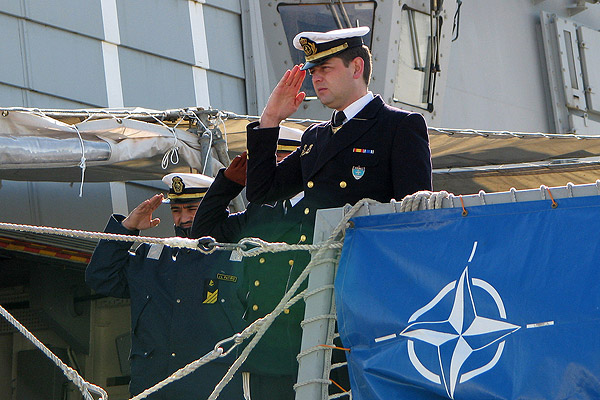
As mentioned previously, one of the questions that arises at every NATO summit is: what does NATO do and should it really bother? Don't take it from me, take it from John Mearshimer:
Mearsheimer, the co-director of the Harris School’s Program on International Security Policy, said that NATO’s future “does not look too bright,” due to global changes that will lessen the treaty’s power, particularly in the Middle East and Asia.
[snip]
Given that its Soviet and German agendas have become less relevant to global politics since 1989, NATO has shifted its responsibilities to those of a peacekeeping role for the U.S. in Europe, cultivating European states to support the U.S.’s “addiction to war,” Mearsheimer said.
(NATO-as-enablers: one of the reasons people are protesting.)
So it's 2012. You've got an old institution whose customers have seen their necessities change from big, easily accessible things everyone wants (keeping Germany from destroying Europe, holding the Evil Empire in check) to niche ventures no one's really sure what to do with. And no one has any money.
Answer: advertise a cheap, efficient product compatible with many existing services. And brand it "smart." (That's "smart" as in "smart phone.") Welcome to Smart Defense, item two on the NATO summit agenda: cheap defense for an austere world.
NATO has made progress toward pooling more national resources, including through the defense capabilities package that the U.S. anticipates leaders will endorse in Chicago. Two key elements of this package will be the NATO Secretary General’s “smart defense” initiative, which encourages Allies to prioritize core capabilities in the face of defense cuts, cooperate on enhancing collective capabilities, and specialize according to national strengths, and his “connected forces” initiative, which aims to increase Allied interoperability.
Interoperability? I'm glad you asked:
Not only is there an integrated command structure, NATO also has capabilities that we have in common. Airborne early warning systems, AWACS aircraft are owned and operated by NATO. We have an integrated air defense system. We have pipelines that allow oil and lubricants to be moved from one part of Europe to other parts of Europe so that you have the fuel necessary for military operations. We have forces that are training together and are interoperable, where we know that the radios, when they talk to each other, we can listen to each other.
We make sure that the fuel nozzles of refueling planes fit whatever aircraft is within the structure of our armed forces to make sure that 28 nations can operate together – and increasingly, not only 28 nations, but the partner nations that work together.
NATO: serving your lubrication and fuel nozzle needs. And your defense-spending-gap needs:
The decline in European defense spending contrasts sharply with developments in the rest of the world. Globally, defense spending increased 50 percent in the last decade. From 2001 to 2010, according to data from the Stockholm International Peace Research Institute (SIPRI), defense spending in Europe only increased by a meager 4.1 percent. Most of the increase came from Britain and France, while spending in most other European countries was decreasing or stagnating. During the same period, China increased its budget by 189 percent, Russia by 82 percent, the United States by 81 percent, India by 54 percent, and Saudi Arabia by 63 percent. In 2011, for the first time, Asia spent more than Europe on defense.
Even if NATO still accounts for two-thirds of world military expenditures, this rapid decline in relative terms—which could be amplified by the announced U.S. cuts—is the most visible marker of the challenge to Western leadership in international security affairs.
This is a business pitch, basically, one that could have come straight from Clayton Christensen.
Confronted with this combination of growing capability shortfalls and declining defense budgets, many experts and leaders have come to acknowledge that “business as usual” is no longer possible…. The concept aims to transform the approach to defense acquisition to deliver capabilities in a more efficient and cost-effective manner…. While the plan for Smart Defense is a major “deliverable” for the 2012 Chicago NATO summit….
"Deliverable" is modestly in scare-quotes, but it's a new venture. And "cost-effective" is a relative term, but at least now the world can work together on the new Star Wars, provided the Russians don't blow it up first.
Photograph: HolgerVaga (CC by 2.0)


